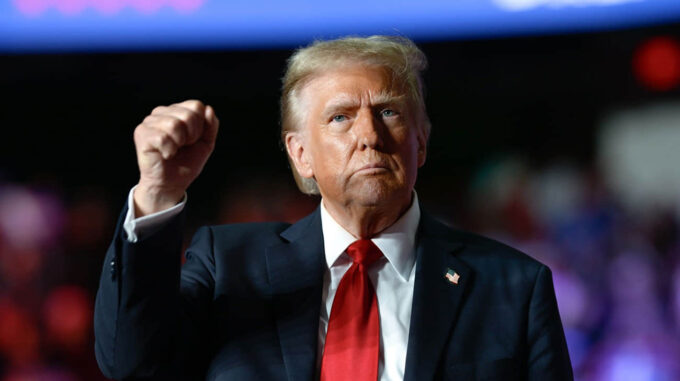Enhanced Tensions and Political Games: How Trump Left the G7 Summit Early and What Lies Behind His Decision

It is evident that the recent G7 summit held in Canada will be remembered by political analysts and international observers as one of the most enigmatic and scandalous in recent years. The main news was the sudden and unannounced departure of U.S. President Donald Trump during the height of the event. This decision sparked numerous surprises and assumptions about the motives behind such a move, as official explanations were quite vague — “to return to Washington to address global conflicts.” However, journalists and high-level sources reveal a more complex and multifaceted context. According to information published by the British outlet Financial Times and confirmed by sources from "European Truth," the reason goes beyond mere diplomatic motives. It is known that tensions between Trump and French President Emmanuel Macron significantly contributed to his swift departure from the Canadian summit. Initially, it was reported that the format was shortened to avoid persuasion and pressure from other leaders, but it later became clear that behind this move lay a more private and politically delicate motive. Sources confirm that Trump did not feel any fondness for Macron, especially due to his stop in Greenland and heated conflicts over control of the island's status. The disclosed data indicates that these personal grievances and confrontations indirectly or directly influenced the American leader’s decision to leave the summit early. It is also noteworthy that there were clear signs of ignoring the possibility of a personal meeting with Ukrainian President Volodymyr Zelenskyy. Reports suggest that Trump made it loudly known to political circles before the summit began that he did not intend to discuss Ukraine, likely due to internal political reasons related to disagreements and tactical objectives. This decision effectively canceled the planned format of negotiations for that time, and after Trump’s departure, political analysts state that the Ukrainian leader lost the opportunity for a personal conversation with his American counterpart. Moreover, it is even more interesting that this partial “quarantine” in diplomatic contacts occurred amid changes in approaches to regional security and international alliances. Equally significant is the fact that against the backdrop of these new political games, NATO made substantial adjustments to its international strategy. For example, the organizers of the Hague summit, where meetings of the leader’s of client countries of the common front were scheduled, had to reduce the number of events to a minimum — just one working session. Insiders say this was intended to prevent a repeat of the situation where Trump had previously abruptly left events, which undermined the authority and unity of all participants. From the experts’ perspective, this move by the U.S. caused even greater resonance: regardless of official statements about internal reasons, political analysis indicates that Trump’s decision to leave the summit early was driven by a number of subtle and strategic motives. On one hand, it was a display of personal discontent and protest against French President Macron’s actions, who made a public stop in Greenland and spoke out against American plans to control the region. On the other hand, the lack of interest in meeting with the Ukrainian colleague indicates his desire to avoid additional diplomatic confrontations and not to entangle himself in international discussions that could strengthen internal political foundations of his administration. In conclusion, Trump’s sudden departure from the G7 summit was not just an exhibition of personal insult or political ambitions but also a sign of global transformations in diplomacy. It demonstrates that today’s leadership must not only possess diplomatic resilience but also the ability to quickly respond to internal political and international challenges while demonstrating tactical flexibility and mastery of balancing interests. It should be added that this incident significantly affected the reputation of the United States in the world and questioned the traditional format of high-level meetings. Experts warn that this case could set a precedent for a new wave of political gaming both within domestic politics and on the international stage, challenging the stability of global alliances and the level of trust among key international players.

